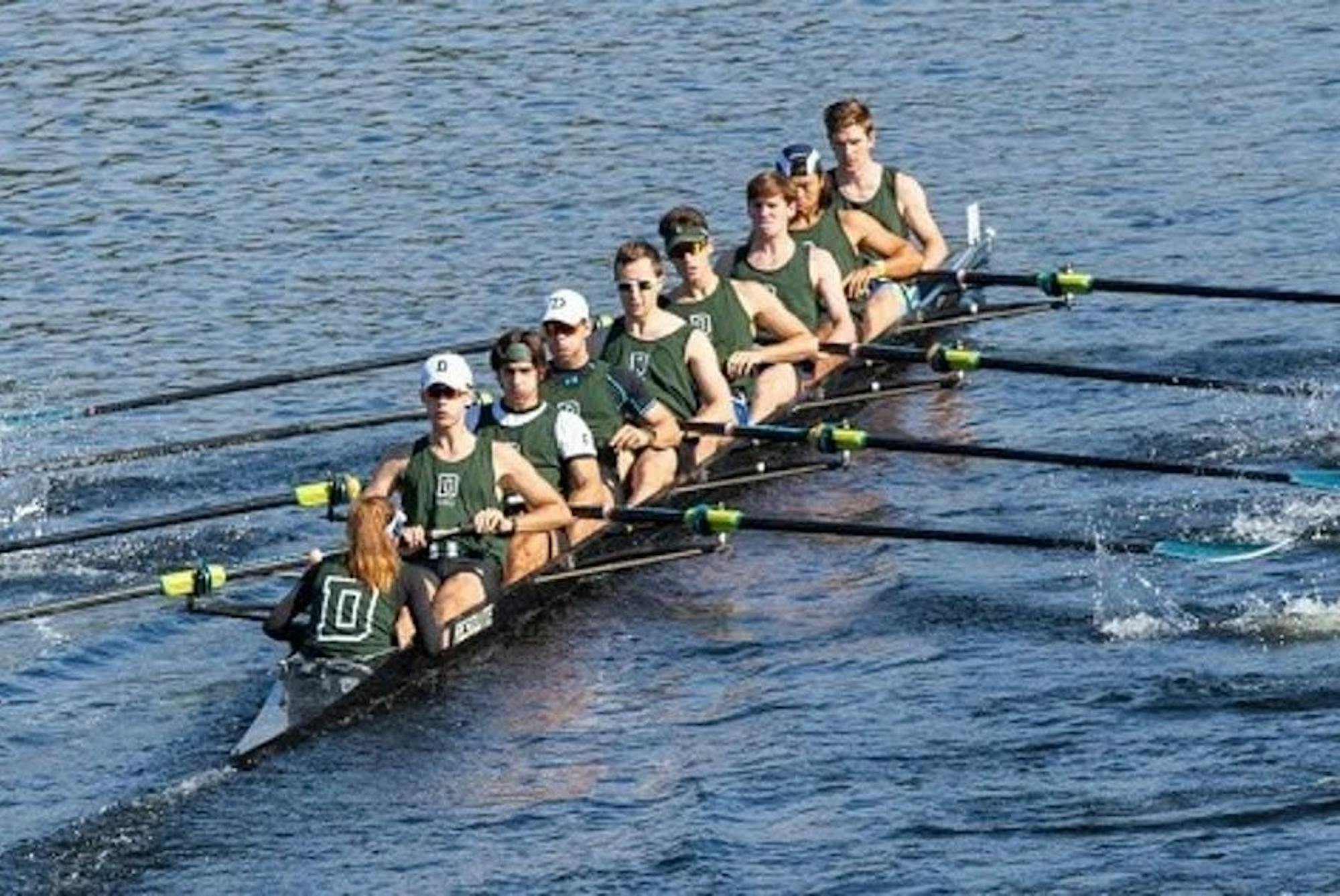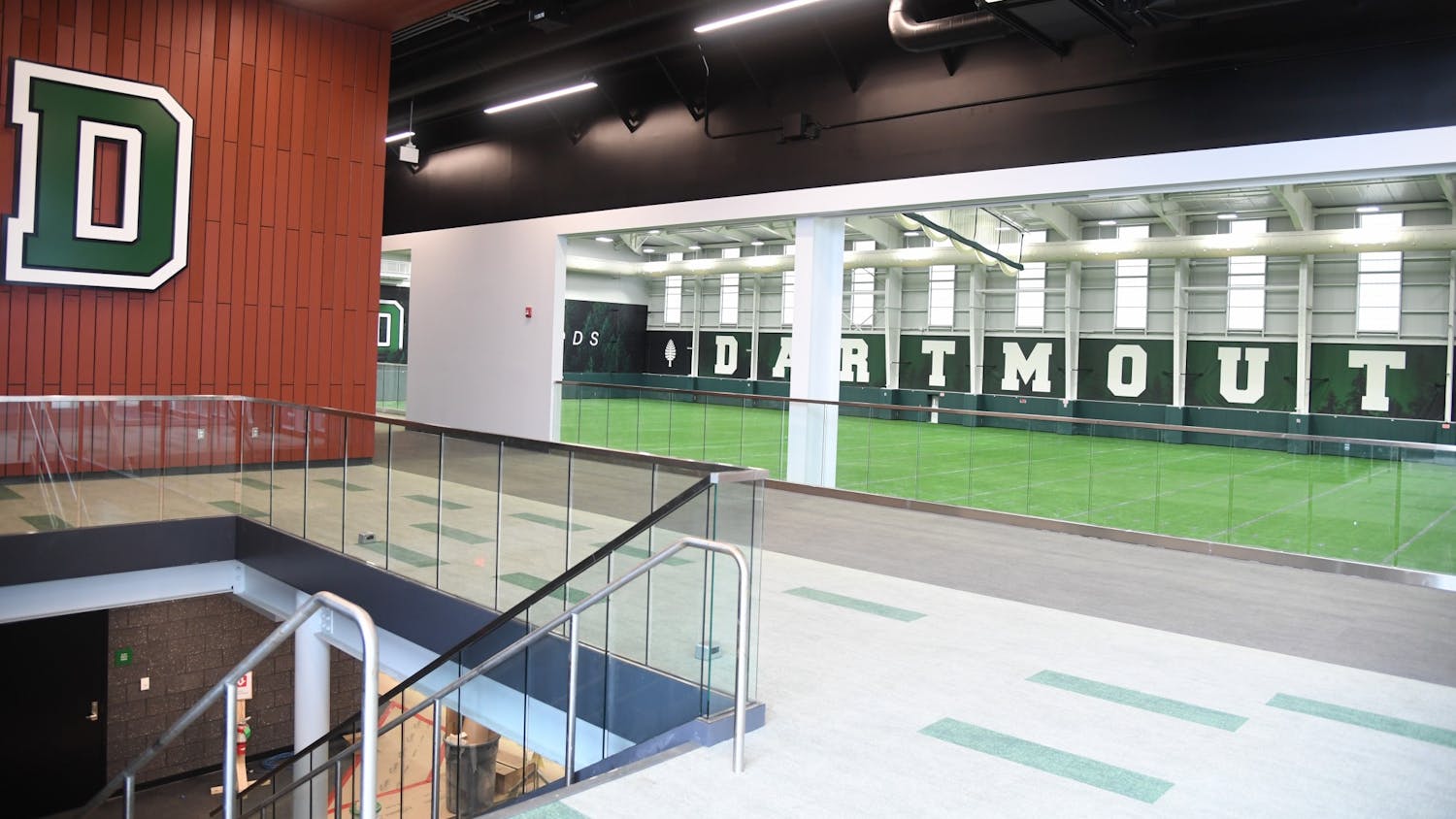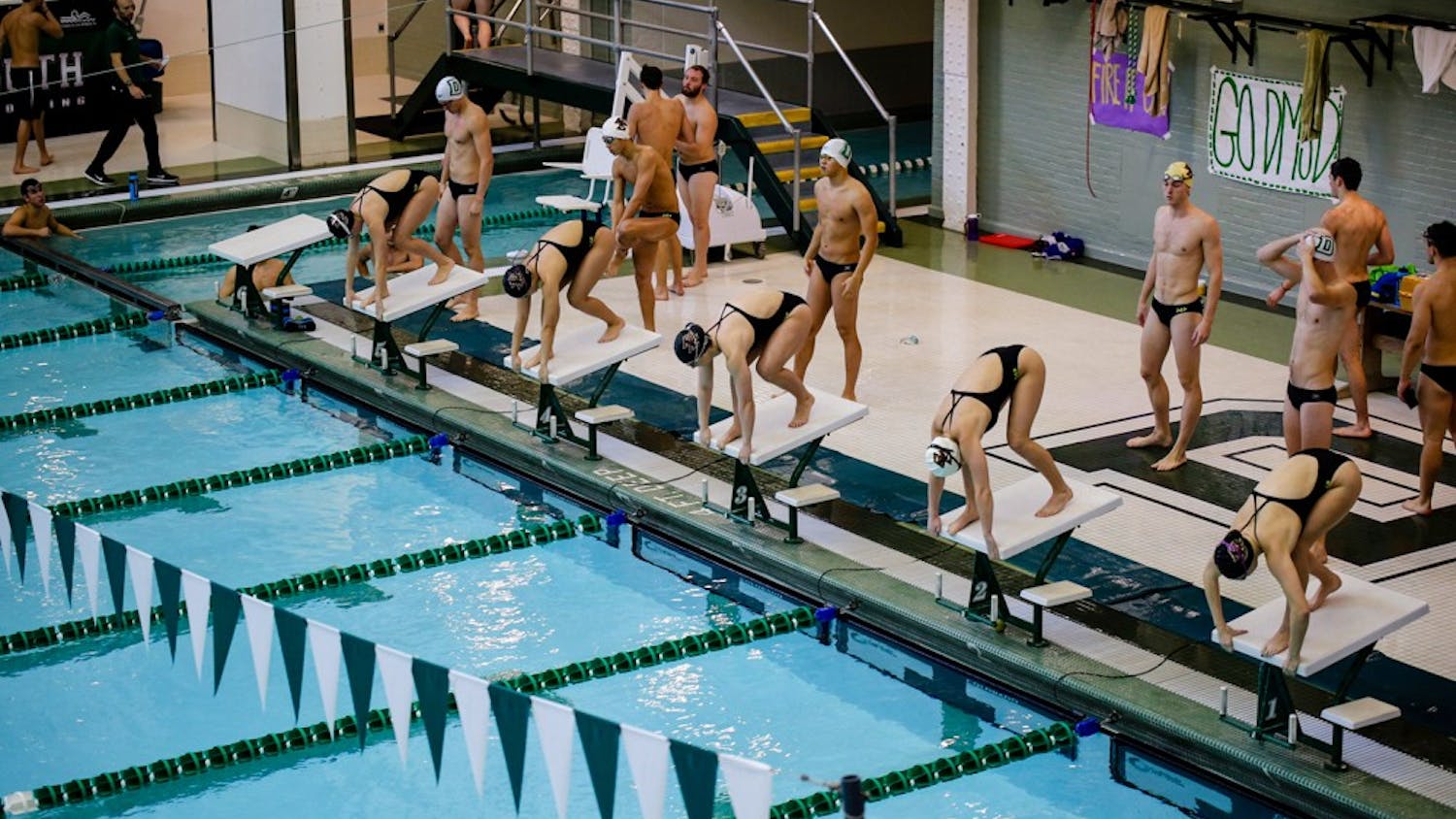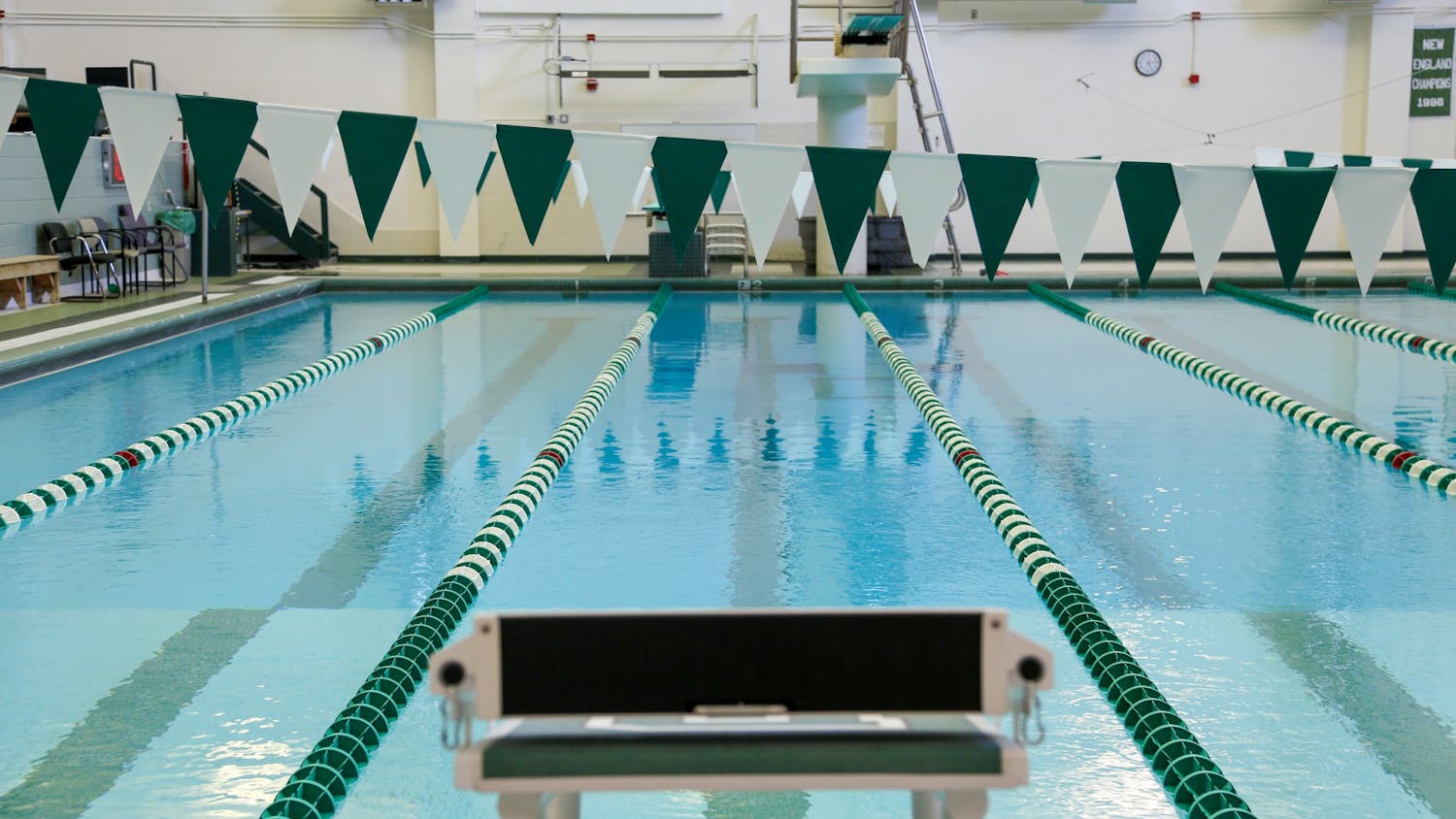After Dartmouth reinstated their teams on Jan. 29, student-athletes on the men’s and women’s golf, men’s lightweight rowing and men’s and women’s swimming and diving teams are preparing to resume training.
After spending the last seven months assuming they would never again compete for the Big Green, student-athletes from the reinstated sports now face the decision of whether or not to return to their teams. With the exception of two upperclassmen transfers and ’24s who either took a gap year or chose to attend another school in order to continue their sports, a majority of athletes have chosen to return to training.
The athletics department has slated the swimming and diving team to resume practice this week, though further details on training remain unclear in the absence of a coach.
“We have a beginning schedule, which starts next week — lifting and then swimming a little bit,” Tim Cushman ’23 said. “We're in this weird position with no coach, but starting to train anyway.”
Seven members of the women’s swimming and diving team joined the women’s rowing team during the fall term after their teams were cut. According to one of these athletes — Rachel Zhang ’24 — and head women’s rowing coach Nancy LaRocque, most of these athletes plan to return to swimming.
“The swimmers who joined us for the fall and winter terms will be transitioning back to the swim roster,” LaRocque said. “A few are considering staying with rowing, but they haven’t made their final decision just yet.”
Zhang does not anticipate the swimmers’ exit will have a significant negative impact on the rowing team, as they were new to rowing and had yet to train with the varsity rowers or practice on the water.
According to LaRocque, the women’s rowing team enjoyed working with the former swimmers and was pleased that the swimmers had the opportunity to join the team even for a short period of time.
And as for the swimmers themselves — they’re eager to get back to the sport that they love.
“I'm just so passionate about it,” Zhang said. “It's my purpose. It's what drives me.”
According to men’s lightweight rower Gabe Kotsonis ’22, who joined the heavyweight team after the cuts, heavyweight coach Wyatt Allen supported the lightweight rowers throughout this process by welcoming them to his team in the fall and helping them resume training as they wait for their own coaching staff to be established.
Though most athletes are happy to be back, many have not had a consistent training regimen since the July announcement. Because the reinstatement went into effect immediately, athletes on and off campus will have to return to their stricter training schedules — an adjustment from the casual mode of training the athletes have been in since the summer.
In the fall, golfer Eli Thrasher ’23 and his teammates would occasionally practice informally. But without the pressure of an impending season, he said finding motivation was harder.
“It’s a lot easier to practice and play a lot when you know that you're preparing for competition,” Thrasher said. “… And when that got taken away, it really stung, and it kind of got to a point where I was like, ‘Why would I go practice? It doesn't really matter.’”
For athletes not on campus this term, training will likely be even more challenging, as COVID-19 restrictions often prevent athletes from doing adequate workouts. Zhang, for example, must abide by the COVID-19 restrictions that her community pool has imposed, thus limiting her practice time.
“You’re limited to a 50-minute slot and only one of those every day,” Zhang said. “It's really hard to get in a solid workout because you have to warm up first, and you have to make sure to warm down, so that takes out a lot of time.”
Many swimmers who have been left with access to neither campus facilities nor Dartmouth swim coaches have turned to personal training plans from home coaches to get themselves back on track for their sport. Others, like Cushman and Kotsonis, continued to practice and play just for love of the sport, but they had to get creative.
“The vast majority of us kept training,” Kotsonis said. “We are in close contact with alumni who have been willing to help fund getting us out in the water, that kind of stuff. … There's a group of us down in Orlando, Florida staying in a house together and rowing in January and now into February that was partially funded by the alumni.”
The golf teams face a separate obstacle to training: practice location. After the closure of the Hanover Country Club, previously their home course, the teams are limited to the use of Dartmouth’s new indoor practice facility.
According to Thrasher, the athletic department is hoping to establish playing privileges at both the Montcalm Golf Club in Enfield and the Quechee Club in Quechee, Vermont, both of which are within 15 miles of campus.
For now, though, Dartmouth golfers are left without a home base. It is unclear whether the teams will be able to begin practicing this winter, or if they will be forced to wait until the spring.




